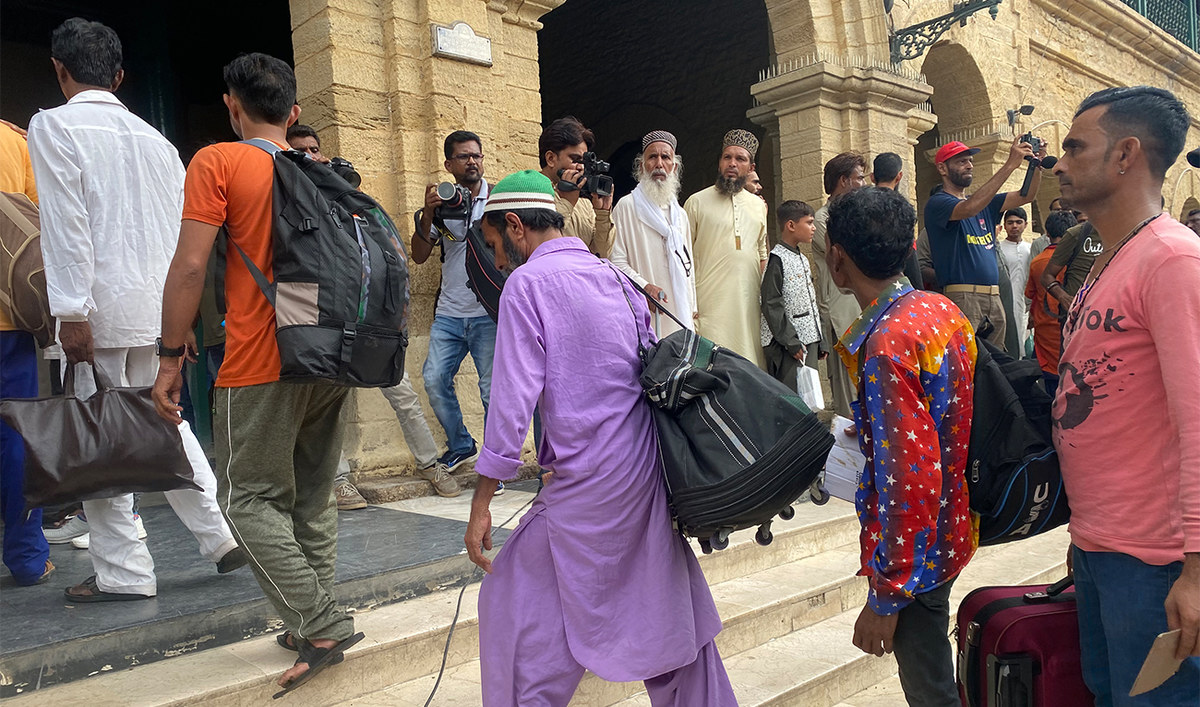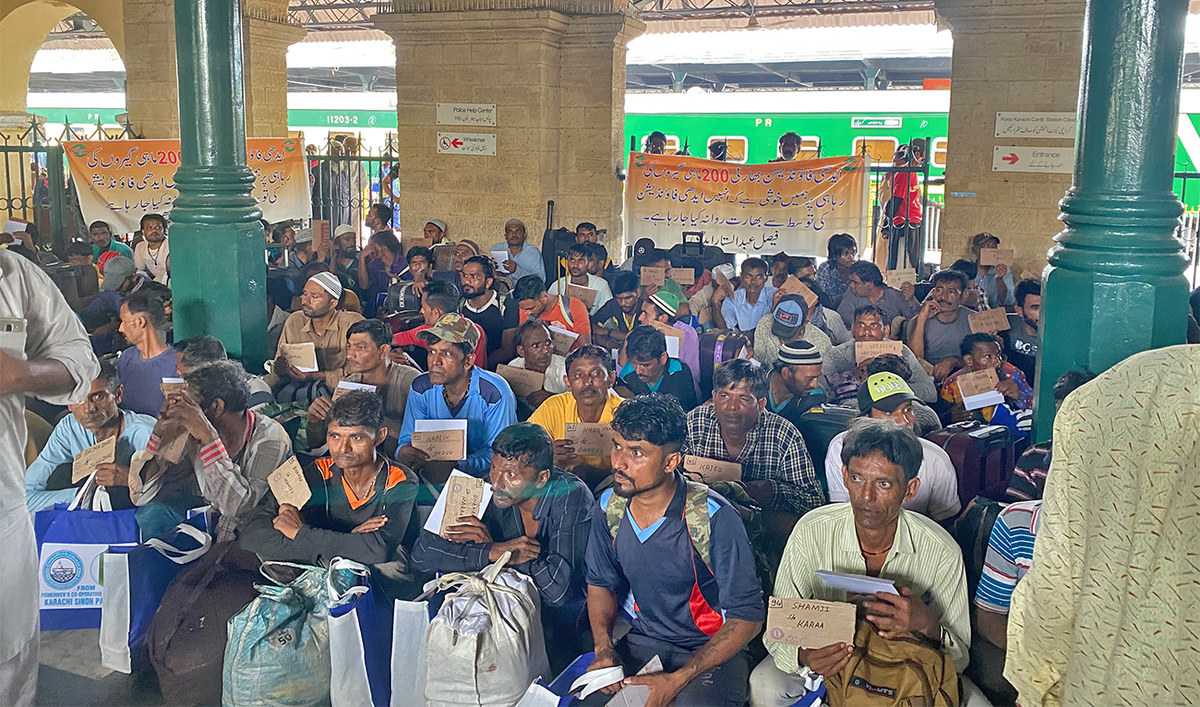KARACHI: Pakistani authorities released 200 Indian fishermen on Thursday, who expressed happiness at the thought of meeting their families again but were sad to leave behind fellow Indian prisoners who passed away in Malir prison.
Indian and Pakistani fishermen are routinely detained by both maritime agencies on charges of illegally entering each other’s territorial waters. The nuclear-armed nations’ borders are not clearly defined in the Arabian Sea and many fishing boats lack the technology to steer clear of any intrusion.
Karachi’s Malir prison has been in the headlines since the past year after several detainees of Afghan and Indian origin passed away due to health complications. In May, two Indian fishermen Balo Jetha and Soma Deva passed away after their health deteriorated in prison. Jail authorities insist inmates are treated well and provided medical treatment whenever they fall ill.
Parmar Sajjan, one of the Indian fishermen released on Thursday, expressed joy at being released but said he would miss his friend Deva, whose body is currently kept at a morgue in Karachi.
“We used to live together [in jail], and if he were alive, he would have accompanied us [to India],” Sajjan told Arab News. “I am happy, and I believe he would have been happy too,” he added. Sajjan said his friend was provided health care in jail before he was taken to the hospital for treatment.

Indian fishermen depart from a railway station after Pakistan authorities released them, in Karachi on June 1, 2023, allegedly arrested for trespassing into its territorial waters. (AN photo)
Sajjan thanked Pakistani authorities for releasing him, adding that he was “extremely happy” that he would finally get to meet his family.
Another Indian fisherman, Hussain Rahim, wished India would reciprocate the move and release Pakistani fishermen who were languishing in Indian prisons. “I want to express that just as we fishermen are being released here, I hope that the Pakistani fishermen imprisoned in India will also be freed as soon as possible,” Rahim told Arab News.
When asked about the facilities being provided to Indian fishermen in Malir jail, Rahim said they were “treated like brothers” there.
Fatima Majeed, a Pakistani fisherwomen and activist, said she could feel the pain of the Indian inmates as her father was also imprisoned in India in 1988.
“I can feel their pain from very close because I have experienced this time too, I have also passed through it,” Majeed told Arab News. “It’s a very painful time.” She said when fishermen are arrested, the women in their families have to seek work in the informal sector to feed their families.

Indian fishermen show their identity card as they departs from a railway station in Karachi, Pakistan, on June 1, 2023, allegedly arrested for trespassing into its territorial waters. (AN photo)
Pakistan’s Foreign Office Spokesperson Mumtaz Zahra Baloch, in response to a question during a weekly briefing, said by releasing Indian prisoners, Pakistan had demonstrated its “consistent policy of not politicizing humanitarian matters.” She hoped India should also release Pakistani fishermen who were imprisoned in Indian jails.
When asked whether a judicial commission existed to ensure the swift release of fishermen, Baloch responded in the affirmative.
“The commission surely exists and the two sides have remained in contact on the mechanics of such visits which we hope will facilitate the civilians and fishermen who are held in prisons in Pakistan and India,” she said.
















